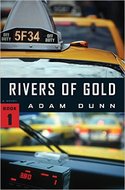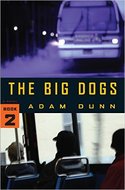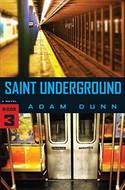Much has been said about the writing process. Some expostulate at length upon the importance of interaction (listening to other people talk about themselves), of immersion (a euphemism for travel) or, most infrequently, literary education (engaging with the writings of others, AKA “reading”). Some camps trumpet the importance of learning the writing game in groups; others quietly declare the crucial requirement of solitude to find one’s inner voice.
Having written fiction and nonfiction, novels and journalism, analyses and treatments for most of my 44 years, I would throw up the notion that the process of writing is in fact most akin to vomiting, of restoring one’s equanimity through purgative means. It is only through the energy of this ejective process that we show ourselves—our most deep-seated conflicts, our innermost creative juices, our true colors—for all the world to see.
In fiction, this begins as a vague disturbance at one’s core, a disquietude along the blurred fault line between the fully-conscious cogito and the less-accessible molten realm of the subconscious, wherein such disturbances frequently bubble to the surface. This wellspring of creative expulsion can often take a great deal of time to raise the gorge of one’s articulative faculties. But once this epistemological point-of-no-return is reached, it swiftly gathers both mass and momentum, drawing various disconnected bits of observation, memory, and off-targeted adverbiage into a congealed lump of nauseating self-absorption. This primal bolus of expression typically imposes a series of steadily-increasing pressure avatars upon itself (the addictive editor, the anal-retentive proofreader, the neurotic and monomaniacal critic) that causes the whole mess to seek the nearest point of release. As is often the case with these tortured bouts of self-actualization, there is a prolonged period of intellectual bruxing and compositional heaving to bring the newborn to light. However, once the endeavor achieves escape velocity, it is all the writer can do simply to grasp the framework of presentation tightly with white-knuckled hands, sweating and trembling with the effort, to ensure a focused stream of enunciation, with as little peripheral spraying of irrelevancies as possible. Once the initial storm of alliteration has passed, beware aftershocks of repetition or tangential inanities. Wipe the strands of dangling modifiers from your lips, and flush clean away all superfluous characters and clumps of repugnant quips and trite neologisms. Catch your breath and clear your eyes.
Thus you will be purged of redactive drivel, that you may behold what you have brought into the world, entirely through the sweat of your own creative faculties. Be warned—it won’t be for everyone. But it will be well and truly yours—truly, you.
Adam Dunn
About Adam Dunn
ADAM DUNN is the author of the novels RIVERS OF GOLD, THE BIG DOGS, and SAINT UNDERGROUND, the forthcoming novel THE UNFATHOMABLE DEEP, and co-writer (with Eric Anderson) of the forthcoming novel OSIRIS. He spent years as a freelance writer cultivating an extensive series of networks among the military, intelligence, law enforcement, and financial communities. His byline has appeared in 18 publications in four countries. Some of those include: CNN and BBC News (online); Inc., Paper, SOMA, and Publishers Weekly magazines (glossy); and the San Francisco Chronicle and South China Morning Post (newsprint). He and his family have left New York City.
Series include: More than Friends | “More”
WEBSITE
“More” Series
The “More” series of dystopian thrillers is set in the Second Great Depression in NYC.
|
|
|
|






No Comments
Comments are closed.